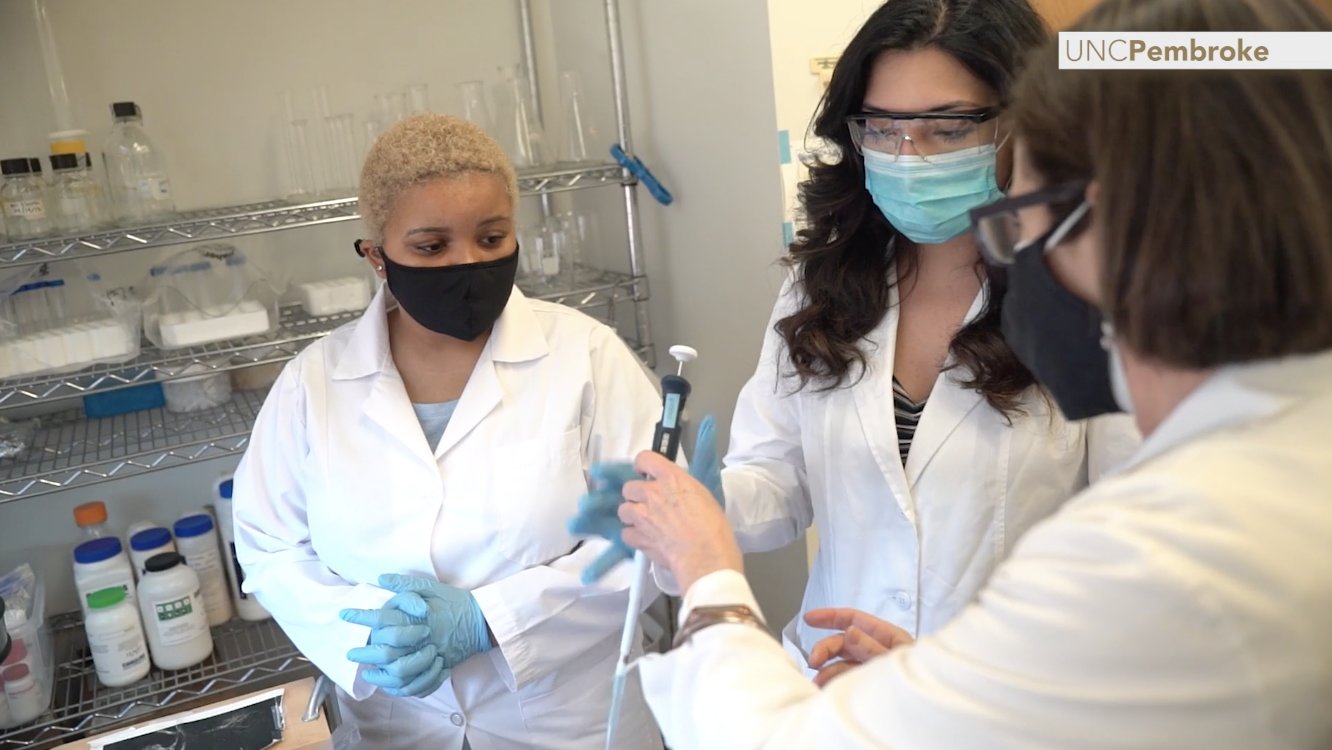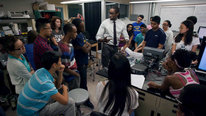August 2021: Improving the Undergraduate Experience: Supporting Underrepresented Students in STEM & Computing

Theme's playlist
Expert Panel

August Theme of the Month Panel: Improving the Undergraduate Experience: Supporting Underrepresented Students in STEM & Computing
Recorded: Aug 10, 2021 at 3:00 PM Eastern Daylight Time
Description: During this webinar, we will hear from four projects that provide students with exposure to career paths, research experiences, faculty mentoring and other initiatives preparing them for graduate school and the STEM and computing workforce. Come be part of the conversation. There will be a one-hour panel followed by a twenty-minute breakout session where you can share your questions and experiences.
View Recording & Bios
Discussion
Post your queries and thoughts related to this month's theme below.Related Resources
This paper describes the five recommendations of the Joint Working Group on Improving Underrepresented Minorities (URMs) Persistence in Science, Technology, Engineering, and Mathematics (STEM) - convened by the National Institute of General Medical Sciences and the Howard Hughes Medical Institute - to increase URM persistence in STEM at the undergraduate level. Within the paper, various types of programs and levels of intervention that exist currently in the US and aim to increase unrepresented minorities in STEM are summarized.
The COVID-19 pandemic forced an unprecedented shift to remote instruction across higher education, reducing access to critically important undergraduate research experience and potentially magnifying inequities faced by first-generation and underrepresented minority (URM) students in higher education. Through a novel course-based undergraduate research experience (CURE) at UCLA, delivered completely online, results of a unique, student-generated survey showed that the transition to remote learning was challenging for all students... [and] results showed significant disparities in remote learning that disproportionately impacted URM and first-generation students...
Low persistence in science majors and limited participation in high-impact research experiences contribute to the nationwide underrepresentation of minorities in the science workforce, particularly jobs requiring a graduate degree. The Program for Excellence in Education and Research in the Sciences (PEERS) is an academic support program at UCLA that supports first- and second-year science majors from underrepresented and underserved backgrounds to maximize student success and science, technology, engineering, and mathematics persistence. Here, we evaluate the success of PEERS through data from the UCLA registrar, student surveys, and longitudinal tracking of student outcomes.
This Research Topic of the Frontiers in Education (STEM education) published this month contains a collection of 13 papers focused on the use of LSAMP (Louis Stokes Alliances for Minority Participation (LSAMP) program of NSF) activities, programs and collaborations to develop pathways to success and graduation of STEM majors from minority groups that underrepresented in STEM.
With a diverse group of partners, the STEM PUSH Network (Pathways for Underrepresented Students to HigherEd) is working to create systemic change in the post-secondary admissions process by reinventing the relationship between pre-college STEM programs and higher education admissions offices.
To identify and broadly engage the next generation of computer science researchers, the Computing Alliance of Hispanic Serving Institutions (CAHSI), an NSF INCLUDES Alliance, piloted a national virtual Research Experience for Undergraduates (vREU) during the summer of 2020. Funded by an NSF RAPID grant, the pilot provided undergraduate research experiences for 50 students and 20 faculty drawn from 20 colleges and universities widely distributed throughout the continental U.S. and Puerto Rico.
The affinity research group (ARG) model is a set of practices built on a cooperative team framework to support the creation and maintenance of dynamic and inclusive research groups in which students learn and apply the knowledge and skills required for research and cooperative work. Using situated learning theory, we conducted a qualitative study of current and former ARG members to understand the potential of the ARG for preparing students for graduate school and professional research careers.
A cooperative learning approach to involving students with diverse backgrounds, an Affinity Research Group (ARG) is an effective means of ensuring student engagement. Through a structured team approach, students learn how to conduct scholarly research, lead effective team discussions, kick off a research project, and much more.




GABRIELLA ASHFORD
Is there a list of professors that are available by state so that I can try and partner with one in Washington to try and get funding to pay peer mentors stipends or internships. I have a 10 year K-12 STEM program that is ready to step up to that level. We have piloted the program, and the teachers in the rural Washington State classroom need the student peer mentors help in teaching STEM.
Patricia Morreale
Good question! If you know that you want a Washington State professor, I encourage you to contact professors from surrounding colleges and universities with a mentoring invitation, either for the faculty or the students. We've found that virtual mentoring works very well and the mentors are even more likely to participate as virtual mentoring can fit in well with their regular schedule. (Particularly good for peer student mentors!) Depending on the STEM disciplines needed, you could bring in mentors from several different campuses, which would broaden the community of college and universities participating and providing students with many examples.
Ann Gates
Another suggestion is to search the NSF awards and identify projects and the PIs who align with your interests. NSF Award Search: Simple Search.
Emma Perez
Will there be a recording of today's webinar? Thank you.
Kimberly Descoteaux
HI Emma, Yes, there is a recording available here: /pages/august2021webinar
Ann Gates
One of the themes that emerged from the discussions highlighted the importance of building communities of learners. Consider communities of faculty and staff who share strategies and lessons learned (Metroplex provides mechanisms for building such communities); communities of students that can reinforce students’ STEM identify and a sense of belonging (the panelists described such communities); and hybrid communities that includes regional and national partners who can provide the needed support structures. I encourage you to review the NSF INCLUDES (Inclusion Across the Nation of Communities of Learners of Underrepresented Discoverers in Engineering and Science) program. INCLUDES alliances use a Collect Impact model or Network Improvement Community framework to accelerate change. Here's a nice article about the newly awarded alliances: NSF Awards $50 Million To Create Five University-Led Alliances Promoting STEM Education for Underrepresented Groups (forbes.com)
GABRIELLA ASHFORD
Yes, we are pretty rural but I have reached out to a UW professor today, and having this national level conversation has left me inspired to partner outside of my community to drive the change within my community. Not just that but it makes me realize that for the last 10 years, other people with the same paths have been driving the same route - just in different vehicles. It's incredibly uplifting. It would also help to have an accountability circle where once a week - we outline our goals, troubleshoot what is preventing getting to the goal, and support each other as we hit new milestones. For example, I managed to get a STEM council rolling before Covid, and then since then, the librarian who was a cornerstone to it has been overwhelmed, so starting it back up has been super hard. Where as in this conversation, we are all focused on the same problems... How would we initiate a 3 month accountability circle (say meets once a week, ends in November...)